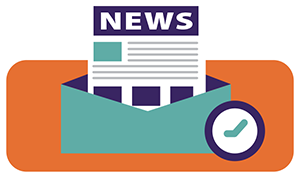In the News
Highlight on Communication Readiness Program
July 26, 2016Below is an excerpt from a Tri-Valley Times article about DSCBA's Communication Readiness Program. Please read the full article here: http://www.eastbaytimes.com/tri-valley-times/ci_30171987/
Around Danville: Camp for kids with disabilities yields results
By Georgia Lambert, Columnist
"I want Peas."
A simple statement, but up until recently, Little Sam Small, 41/2, was unable to vocalize his wants and needs. His parents, Cathleen and Chris Small, of Clayton, enrolled him in the Communication Readiness Program, an intensive six-week communication and language camp set in Danville for children ages 4 to 7 with Down syndrome.
His mom said she saw dramatic improvement in Sam's speech and communication almost immediately. "The exciting progress is that Sam recently said his first spontaneous sentence," she said. "He carefully said, 'I want ...' and then pointed to a toy that he doesn't know the name of. Since then, he has been regularly practicing 'I want ...' when he wants something, and he said 'I like ...' this morning too. This might sound like a small development, but until now all we would get were occasional words; if he wanted a snack of goldfish crackers, he would just say 'fuff." And while he did have some words, they were few and far between -- he wasn't walking around naming everything he sees, like he has been these past three weeks."
The "Peas" that Sam frequently requests are songs by the Black-Eyed Peas. Cathleen said he loves their music, as well as any upbeat tunes. And his favorite things are bacon and Thomas the Train.
Now in its fourth year, the Communication Readiness Program gives children with speech delays and other communication challenges a voice through targeted and consistent communication and learning opportunities. Kati Skulski, a speech and language pathologist, and Amanda Pharis, a teacher with a master's in special education, coordinate the camp and the Augmentive Alternative Communication specialists, aides and numerous volunteers, including high school and college students and four speech and language pathologist students from Cal State East Bay completing internships. The focus is on school readiness skills, social interactions, making choices and expressing needs. Parents are involved and provided with tools and strategies for home time.
"Our kids have very good receptive skills but not necessarily the other way around," said Marianne Iversen, director of programs for the Down Syndrome Connection of the Bay Area.
She explained that the children have communication devices, such as iPads, with thousands of apps, and each student has a Step By Step device that they take home to record their activities. They bring it to camp each morning, a tool to promote conversation about what they did the previous night. The carry-over continues throughout the school year, using customized curriculum and training for the students' teachers.













